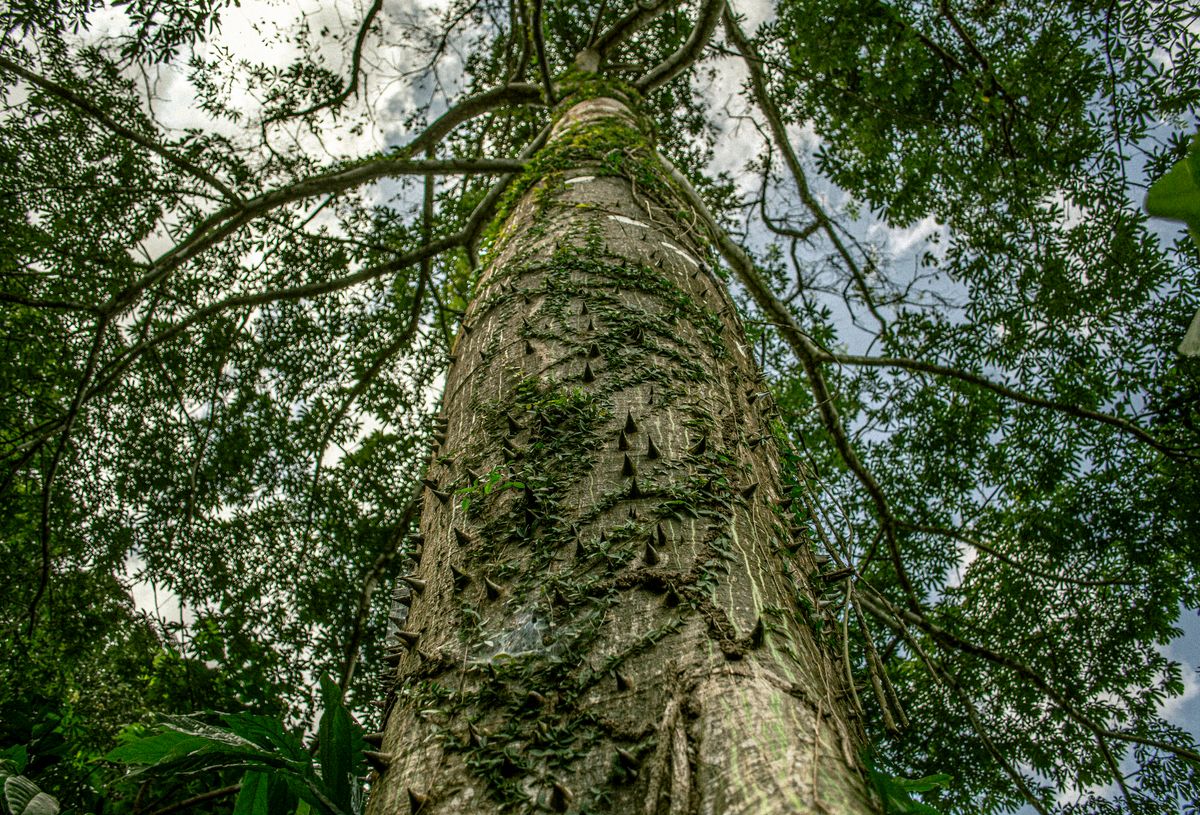The Amazon's Oil Problem
Amazonian countries came together this week to discuss the future of the rainforest. They walked away with little to show.

LISTENING: to the wind chimes chiming
FEELING: stressed and angry about family drama
SEEING: my beautiful flowers grow
I'm keeping today's newsletter short because ya girl is on deadline. (Sorry, sorry, I'll be better about scheduling deadlines on days other than Wednesdays.) If you read last week's newsletter, you'll recall I was just in Brazil. I spent my last few nights in the city of Belém, which sits within the Amazonian biome. The jungle sits a ferry ride away from the city market and restaurants. This is where COP30, the international climate conference, will take place in 2025.
It's also where Amazonian leaders and countries met this week to discuss the future of the Amazon Rainforest, a place unlike no other I had the great pleasure of meeting last week. The Amazon is alive, and you can feel its spirit when you walk beneath its trees. You can hear its breath when you listen to the vines and leaves and mushrooms. You can glow in its essence when you bathe in its waters.
Unfortunately, those who should be protecting the Amazon are not brave enough to guard it from further deforestation and oil drilling. It's as though they wish to see the nightmarish possibilities ahead in a world without the Amazon — a world where the jungle turns to savannah.
Welcome to Possibilities, a creative climate newsletter on the possibilities that lie where crisis meets community. I’m Yessenia Funes, and I can't wait to return to the forest.
At this week's meeting in Belém, representatives from Bolivia, Brazil, Colombia, Ecuador, Guyana, Peru, Suriname, and Venezuela were in attendance. They completed the summit with the joint Belém Declaration where they committed to reduce deforestation, but the countries couldn't come to a common goal on what that looks like. They failed to sign a pledge to end deforestation by 2030, end oil development, and end illegal gold mining. That's a major bummer because what happens in one part of the forest affects the entire thing. If one part of the forest suffers, it all suffers.
As I said before, the Amazon is a living organism.
On a brighter note, the summit did result in the formation of a scientific body that will work across nations and meet every year to study the rainforest. According to AlJazeera, the panel would look a lot like the U.N.'s Intergovernmental Panel on Climate Change — only for the Amazon. That's pretty dope. Hopefully, it can raise the alarm for the forest and its inhabitants the same way the IPCC has for the wider climate crisis.
Let's come back to the oil issue, though. Because this is an important one. Scientists have been clear that if we're to prevent catastrophic levels of warming, global decision-makers must leave oil and gas and other fossil fuels in the ground. At this point, every ton of carbon released is decimating the planet for future generations.
In the Amazon, oil is especially dangerous. And that has nothing to do with climate change. It has to do with air and water quality, access to food and health. For the communities that live in and around the forest — communities I got to meet in Brazil — the rivers are lifelines. Here, families wash their clothes and bathe. The kids have a reprieve from the heat and boredom. Individuals can secure their dinner in the water by fishing. They can find endless fruits and nuts among the trees. The forest is how they survive.
Oil threatens all of that. Spills, after all, are inevitable. They are rarely a matter of "if." They are a matter of "when."
What's exciting is seeing countries like Ecuador ask its people to vote on whether oil development should end in a national reserve that sits in the country's portion of the Amazon. On Aug. 20, voters will get to decide.
This is all very complicated, of course. Yes, countries in the Global South need to build their economies and connect their communities to electricity — but fossil fuels can no longer be the answer. That's why higher-income nations need to step up and commit to supporting lower-income countries that need help skipping over the dirty fuels that got us here in the first place. It's why climate reparations are such a monumental step forward.
The Amazon deserves a future. And so do the spirits who call it home. 🌀
Rest in Power
While we can't say for certain that climate change led to these specific weather events (we need attribution studies for that), we do know that the Earth's rising temperatures are already creating more disasters like these.
In Bangladesh, dengue has killed over 300 people so far this year, making it the country's worst outbreak recorded.
In Georgia, melting glaciers caused a deadly mudflow in a resort town, killing at least 17 as of Aug. 6.
Recent floods in Beijing have resulted in a growing death toll that sits at 33 as of Aug. 8.
In the U.S., emergency responders rushing to a wildfire in California in the sky saw their aircraft collide Sunday, resulting in the deaths of three people
Even more deaths in Arizona's Maricopa County have been attributed to the region's blistering heat wave. So far this year, 39 people in the county have died from extreme heat.
